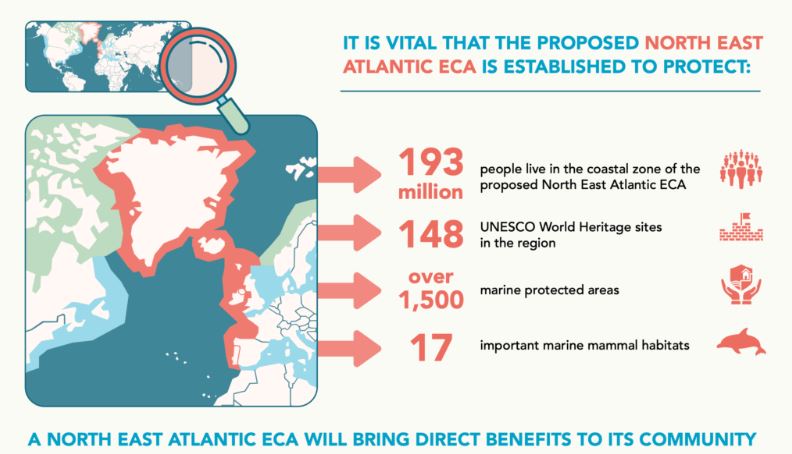 The International Maritime Organization’s Marine Environment Protection Committee (MEPC 83) concluded its meeting on April 11, 2025, with the approval of a new North-East Atlantic emission control area (ECA), set to take effect in 2027, according to The Clean Arctic Alliance's release.
The International Maritime Organization’s Marine Environment Protection Committee (MEPC 83) concluded its meeting on April 11, 2025, with the approval of a new North-East Atlantic emission control area (ECA), set to take effect in 2027, according to The Clean Arctic Alliance's release.
The decision aims to reduce emissions from ships operating in the region, including Arctic waters, by imposing stricter controls on fuels and engines to curb atmospheric pollutants.
The Clean Arctic Alliance noted that the ECA could reduce SOx emissions by up to 82% and particulate matter by 64%, potentially avoiding thousands of premature deaths by 2050.
“Coming just days after the record lowest maximum Arctic sea ice extent maximum in the 47-year satellite record, creation of the North-East Atlantic emission control area will significantly reduce ships’ emissions, improve air quality, and contribute to improving public health and environmental protection in the north-east Atlantic region, including the Arctic waters around Greenland and Iceland,” said Dr Sian Prior, Lead Advisor to the Clean Arctic Alliance.
However, the committee delayed a decision on regulating scrubbers, or exhaust gas cleaning systems, which remove pollutants from ship exhaust but transfer them to the ocean.
A proposal to urge shipping operators to avoid using scrubbers in ecologically sensitive areas, including the Arctic, was deferred to the Pollution Prevention and Response subcommittee (PPR 13) meeting in early 2026.
“It’s therefore disappointing that during MEPC 83, despite widespread support, governments delayed consideration of a proposal calling for a resolution urging member states and ship operators to avoid using scrubbers in highly vulnerable areas such as the Arctic,” said Eelco Leemans, Clean Arctic Alliance Technical Advisor.
Concerns were also raised about the lack of progress on greenhouse gas (GHG) emission reductions. Early indications suggest that agreements on measures, including a carbon intensity indicator, may not support a robust transition to lower emissions. The Clean Arctic Alliance expressed concern that such outcomes could impact vulnerable communities, the Arctic, and global climate goals.
International Maritime Organization (IMO) is a specialized agency of the United Nations established in 1948, headquartered in London, United Kingdom. It is responsible for regulating international shipping, with a focus on safety, security, and environmental performance. The IMO develops global standards, such as the MARPOL treaty, to address pollution from ships, including oil, chemicals, sewage, garbage, and emissions. It has 176 member states and facilitates cooperation to ensure maritime regulations are uniformly adopted and enforced.
The Clean Arctic Alliance is a coalition of 24 not-for-profit organizations formed to advocate for environmental protection in the Arctic. Its members include groups like Greenpeace, WWF, and Ocean Conservancy. The Alliance campaigns for policies to reduce shipping-related pollution, such as black carbon and heavy fuel oil use, to safeguard Arctic ecosystems, wildlife, and communities.



